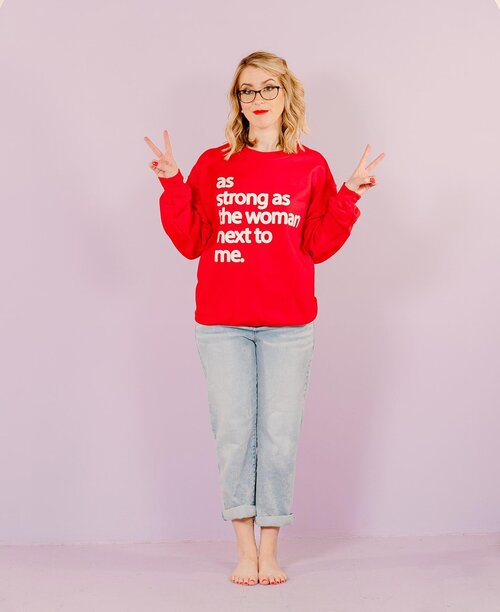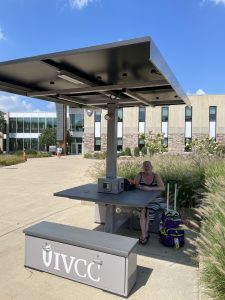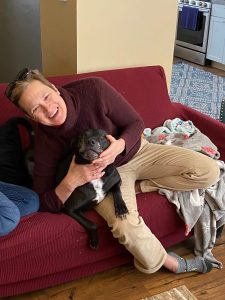What ‘Asking For it’ Really Means
April 8, 2021
As a prevention educator, human rights activist and speaker Karli Johnson’s goal is to work herself out of a job.
Through her work, she aims to educate and engage people in the difficult discussions on taboo subjects such as sexual assault and domestic violence to prevent such acts from happening, and to empower others so that one day jobs like hers will not be needed.
On Monday, March 22 Johnson gave her speech, “Asking For It: What Women Really Want” in honor of Women’s History Month via Zoom for Illinois Valley Community College. In her presentation Johnson discussed violence against women, its history, and what can be done today to keep women safe.
Opening her discussion, Johnson wanted to first make clear that violence against women—sexual and domestic—comes not just in the form of a middle-aged mother being physically abused by her partner as it was viewed as in the past, or by complete strangers, but in all forms and in all ages, not by just strangers, but often by people known to the survivor as well. This ranges from pre-birth violence such as sex-selective abortions, to childhood grooming and marriage, to reproductive coercion, to the unfortunate abundance of other forms of violence against women that occur all the way up to the elderly years.
While on the topic of violence against women, Johnson makes the important distinction that “yes, all of this violence happens to young boys as well as men, but we are specifically talking about violence against women—including trans women—because of the disproportion of power” and that “this is a thing that I do when I go out to schools and I talk to kids and I say things like, especially when we’re talking about things like rape and sexual violence—‘statistically, women are more at risk; however, men can still be victims of all of this abuse, of all of this violence.’”
In terms of what is being done to help women and end these acts of violence, legislations such as the Violence Against Women Act of 1994 have been passed and are updated to be more inclusive and protect more groups under the act, such as immigrants, Native Americans, and LGBTQ+ members. This act and others are still being updated and created, and Johnson encourages people to be involved and contact their state representatives about these issues to incite their support.
Protecting women and ending violence against women in all its forms does not rely only with the government, however. Putting an end to violence against women begins with us in our day to day lives. Johnson states that “prevention education is not teaching women what to do, it is teaching men what not to do,” and that one of the biggest things you can do is to speak up, especially when it comes to victim blaming.
Whether it be to a friend, a family member, a person commenting online, or whomever is making a statement blaming women who have experienced domestic or sexual violence, stand up and speak out against it. As Johnson said, “Be a good bystander. Saying something when you’re seeing something or hear something. And again, going back to that supporting victims of there is so much victim blaming that is happening, that term ‘asking for it’ no, no, this is what we’re asking for. We are asking for education, we are asking for stronger laws, we are asking for support and having funding behind that support so that we can do this work.”




